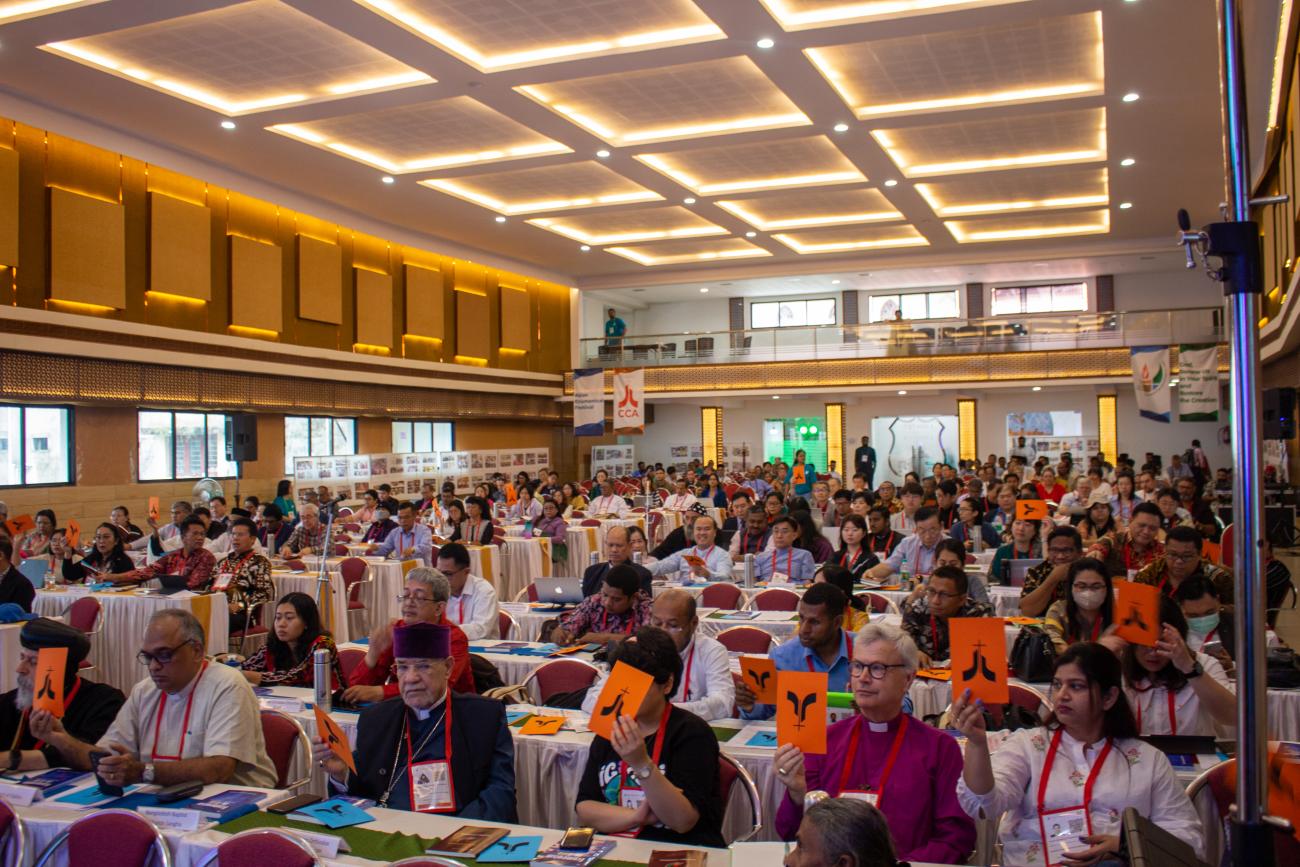General Assembly reviews programmes implemented since 2016, and recommends pathways for the future direction in changing demographic and ecclesial contexts in Asia

Kottayam, India: The 15th CCA General Assembly of the Christian Conference of Asia (CCA) reviewed programmes and activities undertaken by CCA since the post-Jakarta Assembly period, starting from 2016 and until mid-2023, prior to the Kottayam Assembly.
During the Deliberative Sessions held on 29 September in three different groups corresponding to the General Secretariat including Finance, Relationships and Communications, and four programme areas such as Mission in Unity and Contextual Theology (MU), Ecumenical Leadership Formation and Ecumenical Spirituality (EF), Building Peace and Moving Beyond Conflicts and Prophetic Diakonia and Advocacy (PD) reviewed the implementation of strategic programme plans and the new programme structure evolved since 2016. The Review Sessions also discussed the findings of an external programme evaluation report, which was earlier shared with the participants.
During the ‘Programme Direction’ deliberative sessions, the Assembly participants again met on 2 October in three separate groups to discuss future directions.
The Review sessions and the Direction sessions were intended to envision the general direction of CCA programmes in the upcoming programme implementation period, from 2023–2028, including considering recommendations to the member churches and councils, based on various inputs and discussions during the General Assembly of the CCA.
The discussions centred around the mandate, direction, and priorities of the CCA programmes for the coming five years, and the ways and means through which the CCA programmes could be an integral part of the life and witness of the CCA’s constituencies.
The recommendations included aiming for more comprehensive engagement of the CCA constituencies, the development of second and third lines of leadership with the involvement of young people, periodic impact reviews and assessment of the programmes in CCA constituencies, and contextual biblical-theological studies on emerging concerns within and beyond Asia amidst changing demographic patterns and ecclesial landscapes.
Concerns such as migration of the younger generation and isolation of aged communities leading to changing demographic patterns in Asian churches were also identified as priorities to be followed up in the future. Other priority concerns that need to be addressed were identified in areas such as peacebuilding and advocacy on geopolitical concerns, mission and witness in a pluralistic context, interreligious harmony, and health and healing.
A key issue for discernment was the relocation of the CCA headquarters. Given the unviability of the current location of the CCA Offices in Thailand, especially the issues related to employment visa restrictions, and work permits of overseas staff, stringent rules related to foreign currency transactions through Thai Banks, the General Assembly discussed other options. The General Assembly authorised the incoming Executive Committee to consult with member churches and councils on the question of where the CCA office should be located in the future if the unfavourable situation continued.
For more photos (photo gallery) please click here: CCA Future Directions, 2 Septemeber 2023










